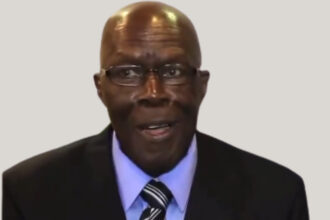Bacha Bazi, a centuries-old practice prevalent in parts of Afghanistan, Pakistan, and Central Asia, has long drawn the ire of human rights activists and international organizations. Translating to “boy play” in Persian, this exploitative tradition sees young boys being used for entertainment and, often, for more nefarious purposes. Despite being officially outlawed in many regions, weak enforcement and deep-rooted socio-cultural dynamics have allowed it to persist in certain areas.
The origins of Bacha Bazi date back several centuries and are intertwined with power, wealth, and societal norms. Historically, it was a practice among the elite, where young boys were dressed in women’s attire to dance and entertain men at social gatherings. In patriarchal societies where interactions between men and women were restricted, these performances filled a void for entertainment.
Over time, the practice evolved into something far more exploitative. Beyond dancing, many of these boys were subjected to sexual abuse by the men who “owned” or “sponsored” them. Often, the boys were from impoverished families, making them easy targets for exploitation by powerful men.
In the modern era, Bacha Bazi has become synonymous with child exploitation. Boys, typically aged between 10 and 18, are recruited or coerced into the practice. Some are sold by their families, while others are kidnapped or lured with promises of a better life. Once involved, they often endure physical and emotional abuse, with little hope of escape.
While Afghanistan is often cited as the epicenter of Bacha Bazi, similar practices have been reported in parts of Pakistan and Central Asia. The perpetrators are usually wealthy and influential men, including warlords, businessmen, and even government officials. Their power and status often shield them from accountability, perpetuating the cycle of abuse.
Bacha Bazi has been officially outlawed in Afghanistan and other countries where it occurs. Afghanistan’s Penal Code criminalizes the practice, with penalties including imprisonment. However, enforcement remains a significant challenge. Corruption within law enforcement, fear of retribution, and societal acceptance of the practice hinder efforts to eradicate it.
One of the most glaring issues is the complicity of officials who are either directly involved in the practice or turn a blind eye to it. This complicity undermines the efforts of NGOs and international bodies working to combat Bacha Bazi and protect the victims.
The root causes of Bacha Bazi are deeply embedded in societal structures. Poverty is a major factor, with families often compelled to sell their children to survive. Additionally, the practice is tied to power dynamics. For many perpetrators, owning a bacha is a symbol of wealth and status, perpetuating a toxic culture of dominance and exploitation.
Human rights organizations have long condemned Bacha Bazi as a grave violation of children’s rights. The United Nations and various NGOs have called for stricter enforcement of existing laws and greater support for survivors. Efforts include raising awareness, providing shelter and rehabilitation for victims, and pressuring governments to take action against perpetrators.
Despite these efforts, progress remains slow. Cultural acceptance of the practice in some areas, coupled with systemic corruption, makes eradication a daunting task. Activists on the ground face significant risks, including threats to their lives, as they work to bring justice to the victims.
The fight against Bacha Bazi requires a multi-faceted approach. Governments must prioritize the enforcement of laws and hold perpetrators accountable, regardless of their social or political status. International organizations and NGOs need to continue their advocacy and support for victims, while addressing the root causes of poverty and inequality that fuel the practice.
Most importantly, societal attitudes must change. Bacha Bazi thrives in a culture of silence and acceptance. Breaking this silence and fostering a culture of accountability and respect for children’s rights is essential to putting an end to this dark chapter in history.
Bacha Bazi is a practice that reflects the intersection of cultural tradition, power dynamics, and systemic inequality. While its origins may be historical, its continued existence is a stark reminder of the work that remains to protect vulnerable children from exploitation. Addressing this issue is not just a legal challenge but a moral imperative for humanity as a whole.


















